 Petzlover
Petzlover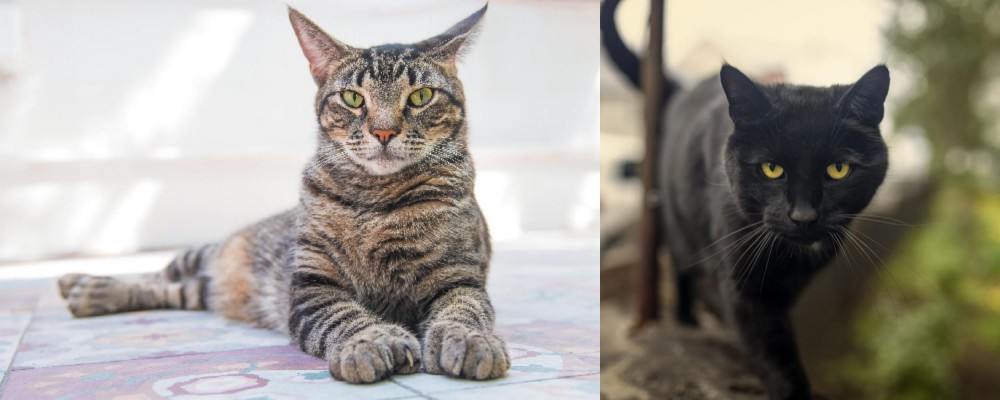 Both American Polydactyl and Bombay are originated from United States. Both American Polydactyl and Bombay are having almost same weight. American Polydactyl may live 4 years less than Bombay. Both American Polydactyl and Bombay has same litter size. Both American Polydactyl and Bombay requires Low Maintenance.
Both American Polydactyl and Bombay are originated from United States. Both American Polydactyl and Bombay are having almost same weight. American Polydactyl may live 4 years less than Bombay. Both American Polydactyl and Bombay has same litter size. Both American Polydactyl and Bombay requires Low Maintenance.
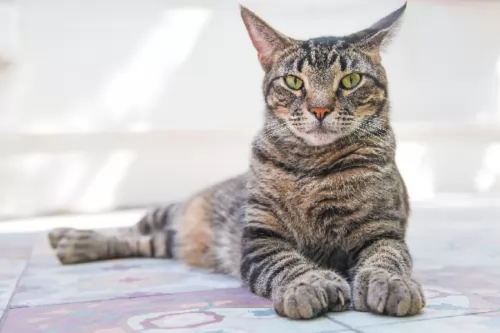 It is believed that this unusual cat came to the United States on ships – kept by sailors who thought of them as a good luck charm and to keep the mice population under control.
It is believed that this unusual cat came to the United States on ships – kept by sailors who thought of them as a good luck charm and to keep the mice population under control.
These unusual cats became popular in the 1800s as ship cats but the cats soon began to be seen in port cities on the Eastern coast of the United States as well as Canada, and their numbers began to increase.
It is also believed these interesting cats were brought specifically to the Boston area.
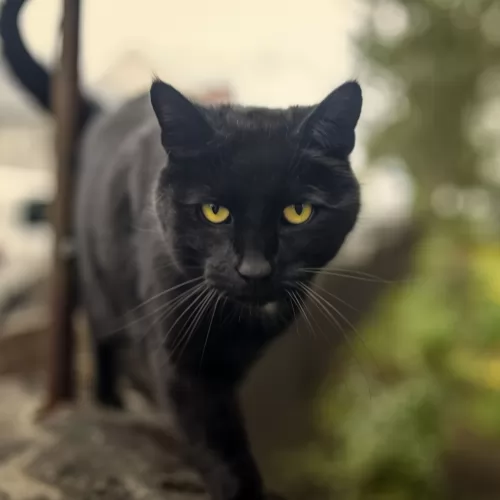 The Bombay cat was developed by breeding black American Shorthair cats and sable Burmese cats to bring about a sleek panther-like cat.
The Bombay cat was developed by breeding black American Shorthair cats and sable Burmese cats to bring about a sleek panther-like cat.
Cats of the Asian group are given the name Bombay cats. It is also known as the Black Mamba or mini-panther. In fact the Bombay cat was developed by Nikki Horner, a breeder from Kentucky, USA.
In 1976 the Bombay cat was successfully bred and was recognized and registered by the Cat Fanciers' Association in 1970 and also the International Cat Association.
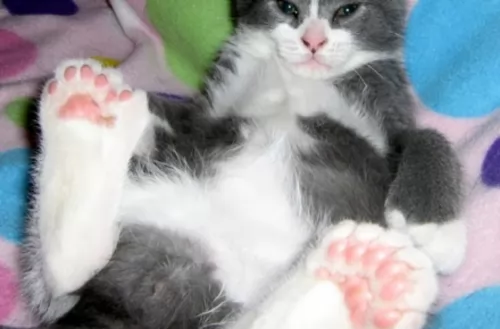 The Polydactyl cat is unusual in that the cat has been born with something odd about it. It has more than the regular number of toes on just one or more of its paws.
The Polydactyl cat is unusual in that the cat has been born with something odd about it. It has more than the regular number of toes on just one or more of its paws.
Normal cats have a sum of 18 toes, with 5 on the front and 4 on the back but with Polydactyl cats you may find as many as 9 digits on their front and back paws.
American Polydactyl cats are medium to large in size with strong, muscular bodies. The cat can weigh up to 6kg. The head is broad, the ears wide-set and pointed and the coat can be any color, pattern and length.
These cats are easy-going, relaxed, and social. They’re hardy too and they’re able to enjoy being outdoors and indoors.
They’re affectionate with their human family and are also playful and energetic. It is prepared to be friendly with dogs and children too, but it is also able to act independently and get on with things. The Polydactyl cat is distinctive but also a very popular cat breed.
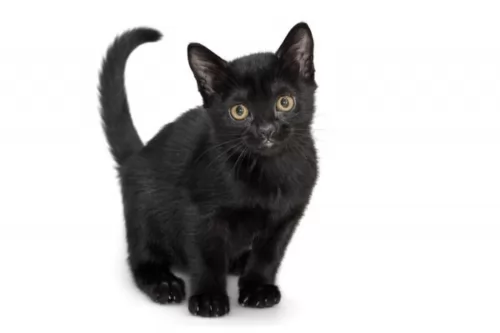 As a short-haired cat, the Bombay is related to the Burmese cat. It’s a medium-sized cat, muscular, lithe, and agile – like a black panther.
As a short-haired cat, the Bombay is related to the Burmese cat. It’s a medium-sized cat, muscular, lithe, and agile – like a black panther.
The cat weighs anything between 3 to 7kg. It is a stocky, compact cat with a round head and ears that are fairly rounded at the tips. The coat of the Bombay is short and glossy. In fact, it is the pitch-black short, close-lying shiny coat of the Bombay cat that makes it so distinctive and that with its green or copper-colored eyes. The cat’s nose as well as the pads of their paws, are also black
Bombay cats are very social, getting on well with all their human family members. They’re affectionate and like to demand attention from their humans.
They’re typical cats in many ways and are curious and alert. You wouldn’t describe the Bombay as an independent cat breed, although the older ones do become more independent as they mature but they are cats that dislike being left alone for long periods of time.
They are however adaptable to different lifestyles and can easily learn new tricks. They’re intelligent cats and will need toys that make him think. He always loves to play with the toys close to his human owner and has quite a loud meow and purr to voice his feelings
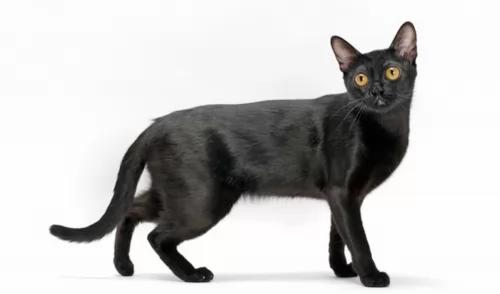 These sleek panther-like cats are a perfect choice if you want a cat that loves its human family.
These sleek panther-like cats are a perfect choice if you want a cat that loves its human family.
Every cat has got their peculiarities and these Bombay cats like heat – you’ll always find them curled up close to the fire or heaters. On a sunny day they’ll want to be outside soaking up the warmth.
Provide your Bombay with all the things he loves and he is guaranteed to make you the most awesome feline companion.
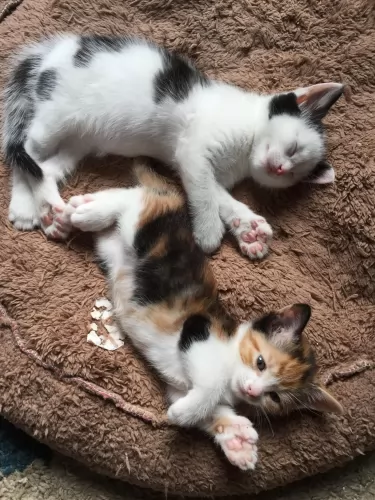 With good care, these cats can live to be between 14 and 16 years of age. You need to be diligent with keeping this cat’s nails trimmed because depending on the placement of the toes, the nails could become a nuisance, growing in the wrong direction and cutting into he cat’s flesh.
With good care, these cats can live to be between 14 and 16 years of age. You need to be diligent with keeping this cat’s nails trimmed because depending on the placement of the toes, the nails could become a nuisance, growing in the wrong direction and cutting into he cat’s flesh.
Keep the nails trimmed as necessary. To avoid possible injury to your pet, your veterinarian can safely trim your cat’s claws.
Always pay attention to your cat's behavior as well as taking note of your cat when you groom him as both are good ways to discover whether anything is amiss with your polydactyl cat.
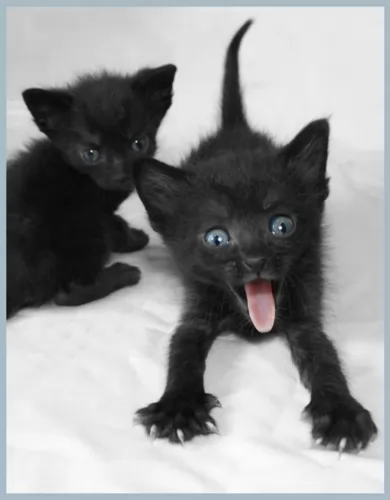 With good care these amazing cats can live to be between 15 and 20 years of age. Your Bombay, just like with other pets, can have any one of the health problems that cats are known for.
With good care these amazing cats can live to be between 15 and 20 years of age. Your Bombay, just like with other pets, can have any one of the health problems that cats are known for.
One of these diseases is craniofacial defect where there is a deformity of the head. Kittens with this deformity are always euthanized.
Vomiting is a sign that all is not well with your cat. Vomiting is actually a common problem with cats and is indicative of a number of causes. It could mean your cat has eaten something inedible, it could mean an infection or even a urinary tract problem.
Remember that ongoing vomiting can lead to dehydration so if your cat continues you must get him to the vet as soon as possible.
Feline Lower Urinary Tract Disease for instance can affect both your male or female cat. There are a number of causes of which stress and being overweight are just two.
You’ll notice your cat battling to urinate, blood in the urine, lack of appetite, restless and licking around the urinary area because of pain. Certainly, this is one reason you want to get your beloved cat to the vet.
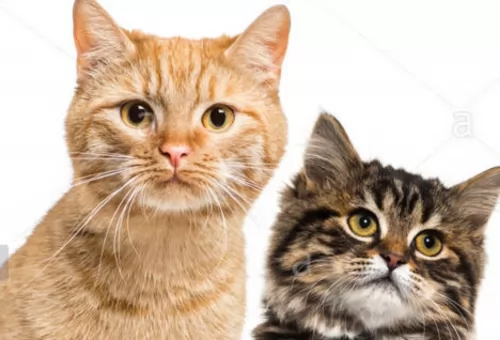 Keep an eye on your cat’s paws as their extra toes can make it that they are at a higher risk of hooking on a carpet or some other material, but this can be managed with regular nail trimming.
Keep an eye on your cat’s paws as their extra toes can make it that they are at a higher risk of hooking on a carpet or some other material, but this can be managed with regular nail trimming.
Provide your cat with all the things he needs to make his life pleasant while in your care. He’ll need feeding and drinking bowls, a nice warm, dry bed, a litter box, stimulating toys, and things such as a scratching post and cat climbing tree.
Cats are meat-eaters, and they need protein from meat for health. Some cooked chicken and beef can be a real treat for your pet. Grains and carbohydrates should only play a very small role in your pet’s diet. Too many grains can lead to malnutrition and obesity as well as problems with your cat's organs.
Always take into account your cat’s age because different life stages mean different energy levels and therefore different nutritional needs.
Take your sick cat to the vet when you see he is not his usual self. Make sure you keep up to date with all his vaccines and anti-parasite treatments.
One of the most important health decisions you’ll make for your Polydactyl cat is to have your pet spayed or neutered. The procedure is common and performed in your vet’s office every day.
It offers lifelong health benefits. It improves your pet’s behavior and keeps them close to home too. Spaying a female cat will prevent uterine infections and breast cancer, and for males, it can prevent testicular cancer.
Best of all, it helps to prevent yet more kittens into a world overrun with stray cats and rescue centers jam-packed with unwanted kittens and cats.
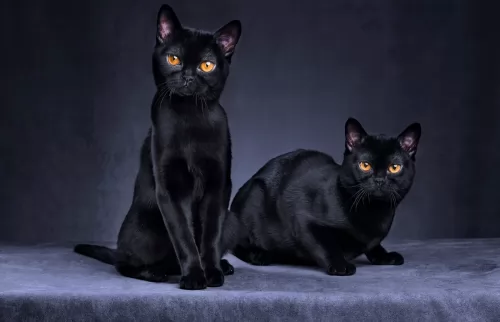 The Bombay isn’t a heavy shedder and requires very little grooming.
The Bombay isn’t a heavy shedder and requires very little grooming.
Provide your Bombay with the right kind of nutrition so that it has every chance to be strong and healthy. Cats are carnivores and you want to be sure that he gets the best food. Make sure that he gets home-made or commercially manufactured cat food that is high in meat protein. Do research or check with your vet to make sure he is being fed the best food there is for his age and activity levels.
Your Bombay requires a constant source of fresh, cool water night and day.
Check inside his mouth from time to time to ensure there are no rotting teeth causing him pain and discomfort. Also, check inside the ears ad make sure they aren’t red which could indicate an infection.
Always get your pet to the vet immediately you suspect that something is wrong.
Keep your cat’s litter box spotlessly clean.
Neuter or spay your Bombay cat to prevent unwanted kittens.Spaying and neuterings as some very beneficial health advantages for your furry friend as well.